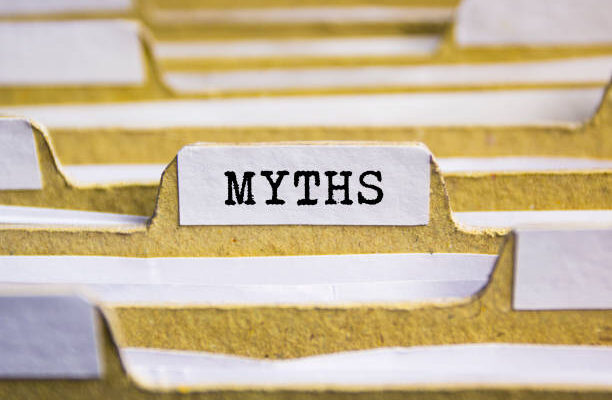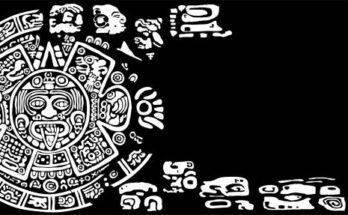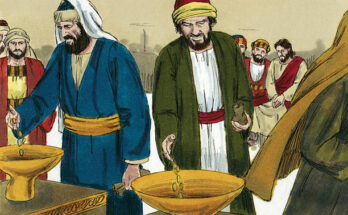In the ever-evolving landscape of the 21st century, where technological advancements and scientific discoveries seem to dominate the cultural narrative, the importance of myths might be overlooked. However, delving deeper into the fabric of human existence reveals that myths continue to play a crucial role in shaping our perceptions, values, and societal structures. This article explores the enduring significance of myths in modern society, emphasizing their role in providing meaning, fostering a sense of identity, and addressing the perennial questions that transcend time.
The Power of Narrative
 (Photo from iStock)
(Photo from iStock)
At its core, a myth is a narrative that explains the mysteries of existence, the origins of the world, and the nature of humanity. These stories, often rooted in ancient traditions, serve as a collective cultural inheritance passed down through generations. In the fast-paced and complex world of today, where individuals grapple with the uncertainties of life, myths offer a semblance of order and understanding.
Myths provide a framework for comprehending the intangible aspects of the human experience, such as love, loss, and the pursuit of purpose. They offer a narrative structure that helps individuals make sense of their emotions, actions, and relationships. In a society bombarded with information and stimuli. Furthermore, myths act as guiding stories, shaping the way we interpret the world around us.
Cultural Identity and Belonging
Myths are integral to the formation and preservation of cultural identity. In an era characterized by globalization and cultural exchange, myths serve as anchors that tether communities to their roots. These stories encapsulate the values, traditions, and beliefs that define a particular culture, providing a sense of continuity across generations.
For many societies, myths are not merely tales of the past; they are living narratives that inform present-day customs and rituals. From creation myths to epic tales of heroes, myths contribute to a collective consciousness that strengthens the bonds within a community. In an age where individuals may feel disconnected from their cultural heritage, myths offer a pathway to rediscover and reaffirm a sense of belonging.
Guiding Morality and Ethics
 (Photo from iStock)
(Photo from iStock)
Beyond their role as storytelling devices, myths often contain moral and ethical lessons that guide human behaviour. Ancient myths, such as Aesop’s fables or the stories of Greek gods and goddesses, impart timeless wisdom about virtues, vices, and the consequences of one’s actions. In the modern context, where ethical dilemmas and moral relativism can complicate decision-making, myths provide a moral compass.
Myths offer archetypal characters and situations that mirror the complexities of real-life choices. By presenting moral quandaries and their resolutions, these stories contribute to the development of a shared ethical framework within society. In doing so, myths foster a sense of responsibility and accountability, encouraging individuals to reflect on the consequences of their actions in the broader context of human experience.
Addressing Existential Questions
Humanity has grappled with existential questions since time immemorial: Why are we here? What is the purpose of life? What happens after death? With their rich tapestry of symbols and allegories, attempt to provide answers to these profound inquiries. In a world increasingly shaped by science and reason, myths offer a complementary narrative that addresses the metaphysical and transcendent aspects of human existence.
While science explores the mechanics of the universe, delve into the meaning behind the phenomena. They speak to the human need for purpose and connection, offering a narrative bridge between the known and the unknown. In a secular age, where traditional religious frameworks may be in decline, they continue to serve as a source of existential consolation and a testament to the enduring quest for meaning.
Adaptability and Evolution
 (Photo from iStock)
(Photo from iStock)
Contrary to the perception of myths as relics of the past, they exhibit a remarkable adaptability that allows them to endure and evolve with the times. In the age of technology and information, have found new avenues of expression, from contemporary literature and film to digital storytelling. Further, these modern iterations of demonstrate their ability to resonate with current audiences while retaining their timeless themes.
The reinterpretation of them also highlights their malleability. Allowing societies to imbue these stories with new meanings that reflect their evolving values. Just as ancient myths were shaped by the cultural and social context of their time. Modern myths continue to be shaped by the pressing concerns and aspirations of contemporary society. Moreover, this adaptability underscores the enduring relevance of myths as a dynamic and living cultural force.
Inspiration for Creativity and Innovation
Myths, with their fantastical narratives and imaginative elements, serve as wellsprings of inspiration for creative endeavours. From literature and art to music and film, myths provide a fertile ground for the exploration of human imagination. The archetypal characters, epic journeys, and moral dilemmas found in myths offer a rich palette for artists. And creators to draw upon in their quest to make sense of the human experience.
Moreover, myths inspire innovation by encouraging individuals to think beyond the confines of conventional wisdom. The hero’s journey, a recurring motif in many myths. Mirrors the challenges and triumphs inherent in the pursuit of ground-breaking ideas. Evidently, by tapping into the universal themes embedded. Innovators and visionaries find a well of creativity that transcends cultural and temporal boundaries.
Conclusion
In conclusion, the importance of myths in modern society cannot be overstated. These timeless narratives continue to weave themselves into the fabric of human existence. Providing a source of meaning, identity, and guidance. In an era marked by rapid change and uncertainty. They offer a stabilizing force that connects individuals to their cultural heritage. Guides their ethical choices, and addresses the perennial questions that define the human experience.
As we celebrate the one-year milestone of this article, it serves as a reminder that, despite the technological advancements. And scientific progress of our age. The resonance of myths endures. From the ancient campfires to the digital screens of today. Eventually, these persist as powerful vessels of human wisdom and imagination. Reminding us of the enduring threads that connect us to our past and propel us into an ever-evolving future.




